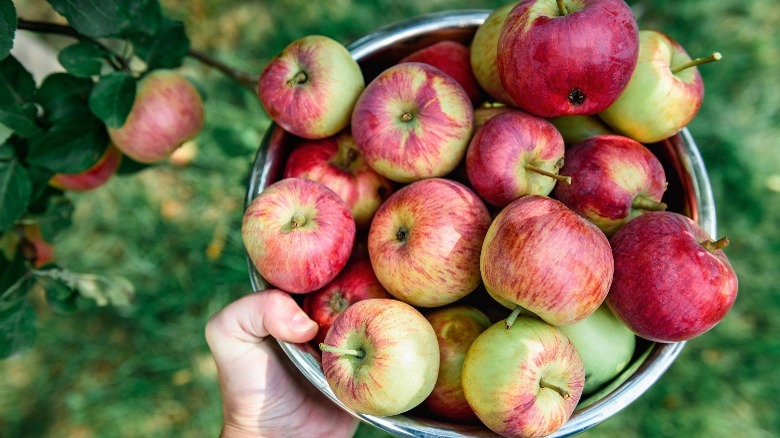Why You Should Be Mindful When Buying Apple Cider This Fall
When the temperatures cool and the leaves begin to change, you've reached the perfect time of year to turn to a comfortingly warm brew like apple cider. However, health officials in countries where apple production is common, such as the U.S. and Canada, would like to remind consumers that unpasteurized apple cider can pose serious health risks.
The United States Food and Drug Administration and Health Canada warn that juices and ciders that aren't heat-treated can contain harmful bacteria like E. coli, salmonella, and cryptosporidium. While many, if not most, ciders you can buy at a grocery store are pasteurized (heat-treated), the same laws may not apply to cider you get in individual servings, such as those you might enjoy at a farmers market, roadside stand, apple orchard, or cider mill. You should also remain cautious in restaurants and juice bars if you don't receive the beverage in its original packaging or if it's house- or homemade.
Who is at risk?
Anyone can get sick from contaminated food and beverages. But children, pregnant people, older people, and individuals with weakened immune systems or their caregivers should be especially vigilant. Food safety is a significant concern for those populations, so go out of your way to double-check how the cider they drink was made.
It's best to check labels carefully and drink only pasteurized apple cider. Refrigerate the products whether they're pasteurized or not, and if you're ordering them at a restaurant, juice bar, or elsewhere, ask whether the product has been pasteurized. If you work for one of those locations, find out and inform your employees.
If you're making your own apple cider from freshly juiced apples, you can pasteurize it at home by bringing the mixture to a temperature of 160 degrees Fahrenheit (70 degrees Celsius) for at least one minute over a double boiler.

